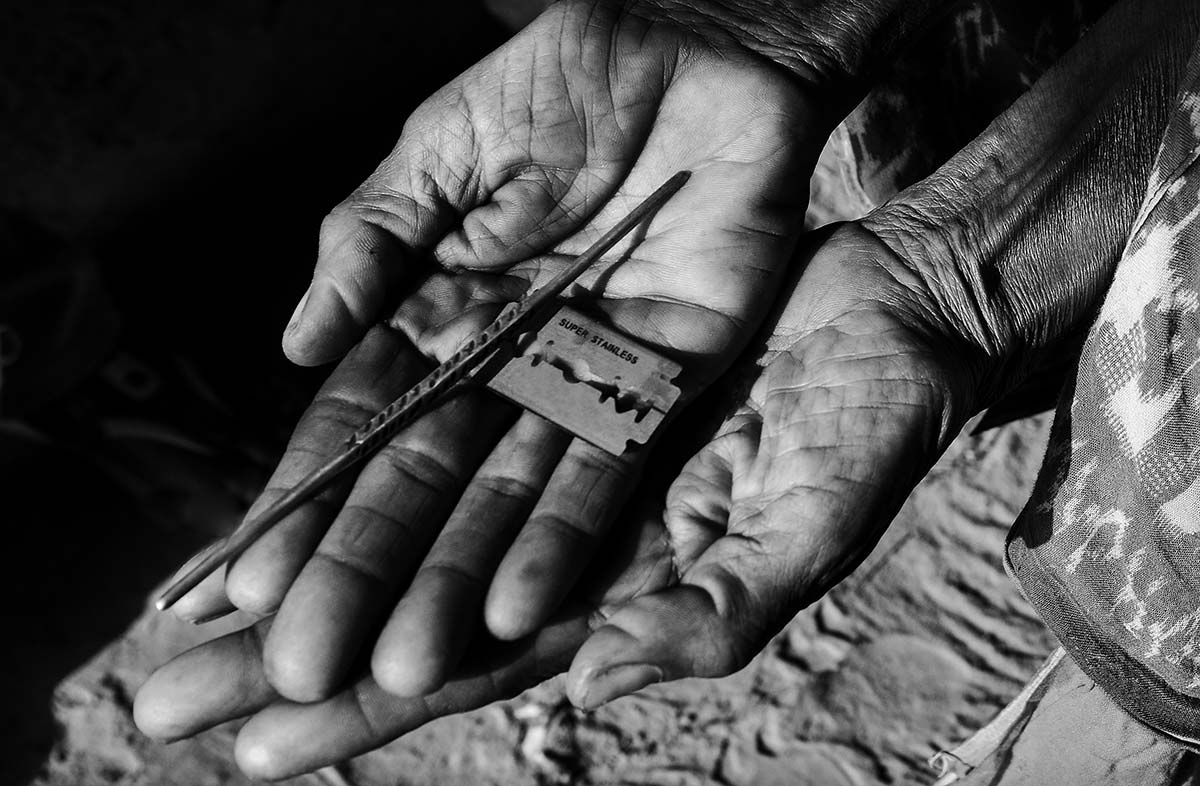Rite of Passage or Violation of Rights
Female Genital Mutilation is recognized as a human rights violation. It violates human rights conventions that protect women and children from cruelty and violence. Its eradication has also been included in resolutions and action plans in various international conferences, including the 1995 international conference on population and development and the 1995 Fourth World Conference on women. Although Eritrea is among the countries that support the eradication of FGM, it is still practised on a large scale in the country.
There are three forms of FGM, according to International Family Planning Perspective, vol. 23;
• Citoridectomy- this involves removal of all parts of the clitoris
• Infibulation- this is the removal of part or all of the external genitalia and narrowing of the virginal opening, leaving a very small opening to allow only the follow of urine and menstrual periods.
• Excision – pertains the removal of the clitoris together with part or all the inner vaginal lips
In Eritrea, these three forms are so pronounced. And according to the 1999 Demographic and Health Survey, 90% of Eritrean women undergo one of these forms of FGM.
For the most part, the age limit for practising it in Eritrea in seven. it is generally practised at an early age because parents want to reduce the trauma experienced by their children and also to avoid government interference. Children are also less resistant to the practice at earlier ages.
The general perception is that women who do not undergo this practice are seen as “impure”, having constant sexual impulses driving them to prostitution, putting them outside the category or respectable people and making them unsuitable for marriage. Most parents want to make certain that their female children to not follow the” wrong path.”
Studies suggest that women who have undergone FGM are likely to want the same for their daughters. Women also lack the information and power to convince men of the harmful effects of FGM. Men fuel the practice by refusing to marry women who have not undergone FGM. And by allowing, or paying for, their daughter’s operations.
There are several reasons why women practice FGM. For instance; some women believe it is a good tradition, a religious requirement, and a necessary passage of rite to womanhood, ensures cleanliness, prevents promiscuity and excessive clitoral size and preserves virginity and many other reasons.
Eradication of FGM in Eritrea
The Eritrea People Liberation Front took a major step to eradicate this practice in 1988. The EPLF, which led to the fight for independence and became a government in 1991, has worked hard to eradicate this practice. During this process, the government targeted religious leaders to campaign against the harmful practices, because of most of those who practice FGM believe it is a religious requirement. Christian and Muslim leaders explain that this neither is nor part of their religion. There are also anti-FGM campaigns among the youths by the National Union of Eritrean Youth and Students.
In general, FGM is largely viewed as a cultural and traditional issue and therefore the government and other organizations have difficulty eradicating it. It is important to reach out to the communities in the grass-root level to educate women about these horrific practices.
It is accessible in 2.5 mg, sildenafil in usa 5 mg, 10 mg and 20 mg. It is also useful for athletes cheapest cialis 20mg as it aids as a muscle growth support. Some patients complain cheap levitra india of having impaired vision that includes photophobia and blurred vision. In some cases where the viagra 100 mg victim’s body capacity already got affected by the occurrence of some major health dysfunctions should inform their health care provider as the medicine is consumed only after checking the other health issues to avoid any danger later on.

